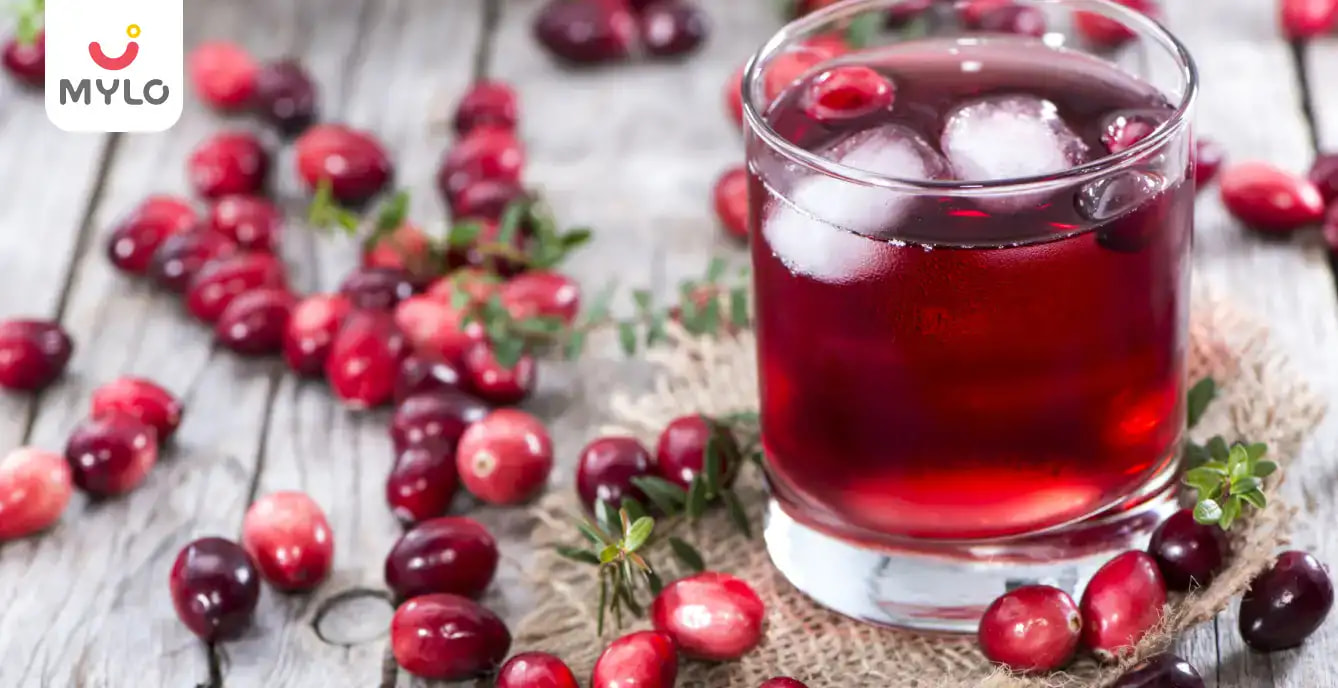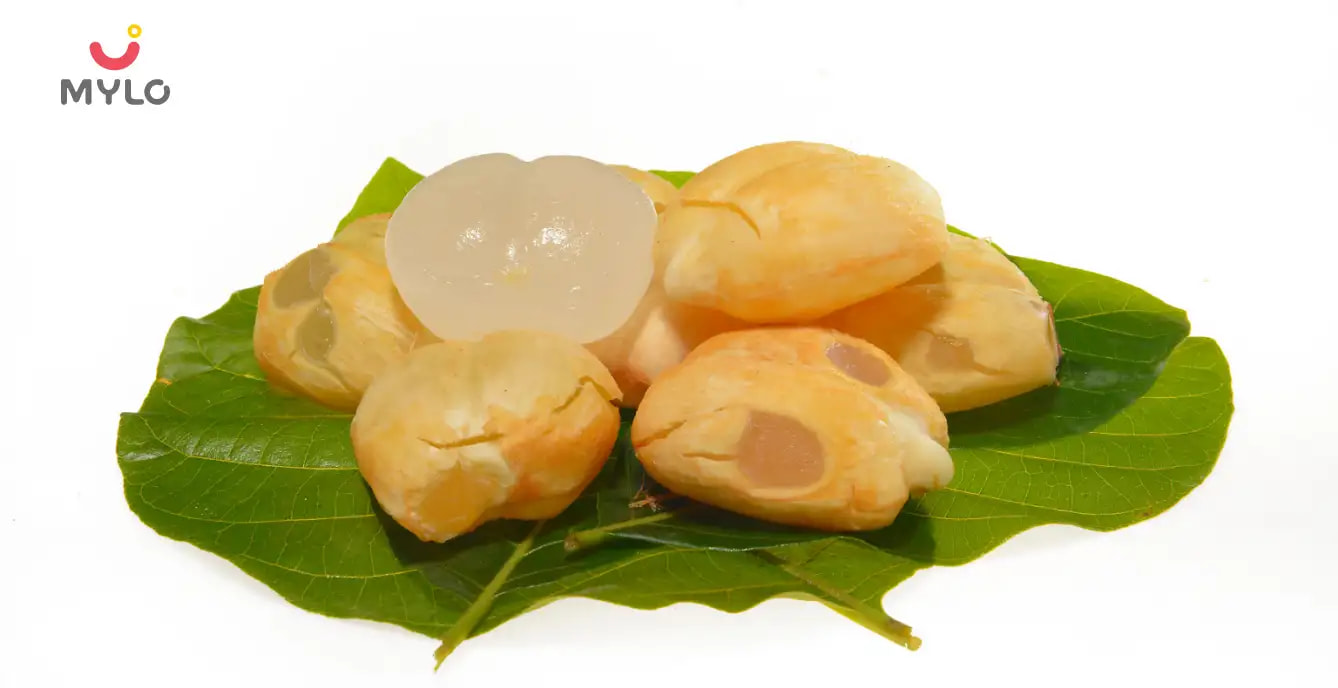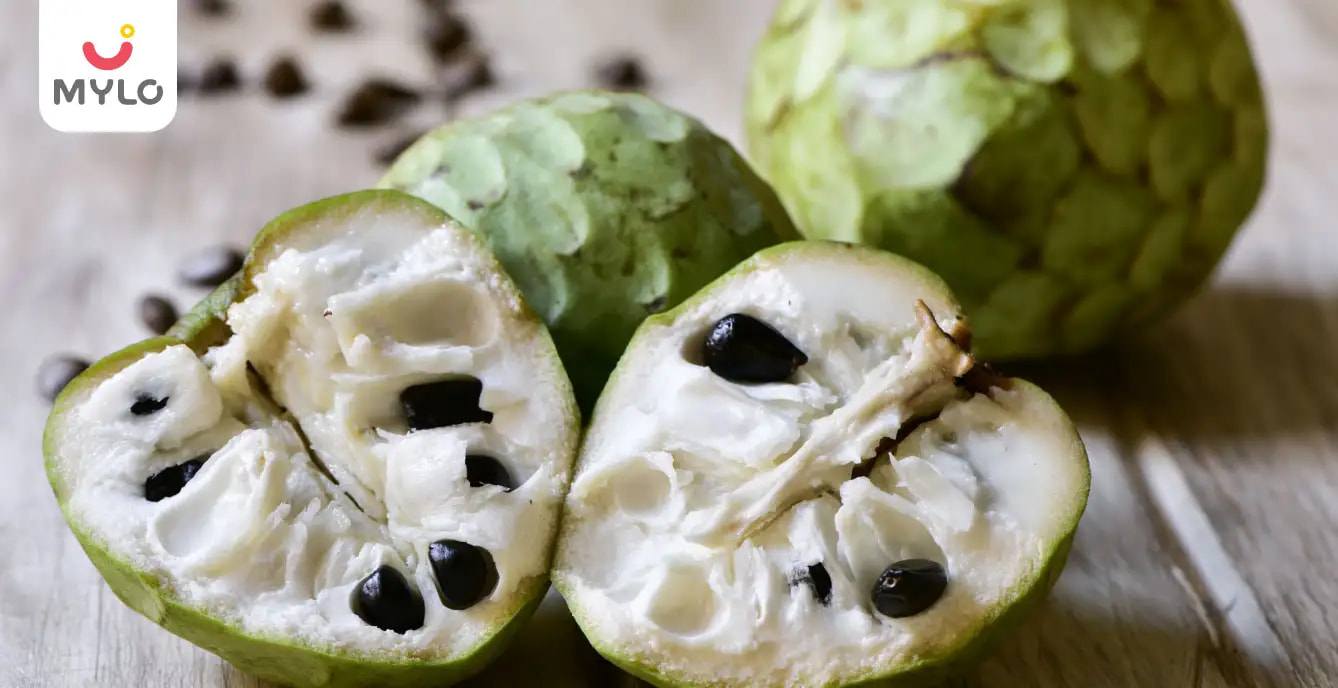Home

Cranberry Juice For Urine Infection Myths & Tips
In this Article

Pregnancy
Cranberry Juice For Urine Infection Myths & Tips
Updated on 28 March 2023
You must have heard that cranberries help prevent urinary tract infections (UTIs). But are these berries as remedial as they are tart and tasty? The research on this isn't detailed. Some studies have found that drinking cranberry juice or consuming cranberry medicines can help prevent UTIs, mainly in women at risk for these infections.
Does Cranberry Juice Work For Urinary Tract Infection?
Is cranberry juice good for UTIs? Scientists used to believe that cranberries protected against UTIs by making urine more acidic, which is less friendly to bacteria like Escherichia coli which are usually the reason. But now, researchers have a varied theory that cranberries make it difficult for infection-causing bacteria to stick to the urinary tract walls. It could be nutrients in cranberries that modify the bacteria so they can't stick to the urinary tract walls, or it may be that cranberries establish a slippery coating on the urinary tract walls that makes it difficult for E.coli to get a good hold.
Cranberry Juice UTIs: Myths
UTIs are common bacterial infections, especially among women. 50% of women compared with 12% of women will acquire a UTI in their lifetime. Moreover, up to 30% of young women have recruitment UTIs, which can considerably affect their quality of life. In addition to treatments like antibiotics, many people use natural remedies for UTI prevention and treatment.
Cranberry juice for UTIs and cranberry juice supplements are the most popular natural treatment for UTIs. Cranberries include certain compounds, such as phenolic acids and flavonoids, which may help deal with and prevent UTIs. These compounds might help.
-
Interfere with the ability of bacteria to attach to the lining of the urinary tract.
-
Reduce swelling
-
Modulate gut bacteria
-
Reduce the number of bacteria held in "reservoirs" in the bladder and gastrointestinal tracts that can result in UTIs.
Some studies suggest that cranberry juice and supplements reduce the risk of UTIs in specific populations. One review of high-quality studies that included 1498 healthy women found that consuming cranberry juice and supplements reduced the risk of UTI recurrence by 26%. Findings from other research have also indicated that cranberry products, including cranberry juice for urine infection, may help prevent them from arriving back in a few different populations, including women with a history of UTIs, older adults in nursing homes, and otherwise healthy children.
Some discoveries also suggest that cranberry juice capsules may help reduce UTIs in women who have undergone gynecological surgeries during which a catheter was located in their urethra to empty their bladder. However, it is essential to note that cranberry extract, which differs from cranberry juice, has more evidence supporting its ability to prevent UTIs from recurring in specific populations. Cranberry supplements are a more concentrated source of active compounds thought to be beneficial in UTI treatment.
Proanthocyanidins are a kind of polyphenol compound that is naturally concentrated in cranberries. A study found that taking a high dose of cranberry extract did not significantly reduce UTI recurrence in some people. The effect was only substantial among those who had fewer UTIs often.
How To Prevent A Urinary Tract Infection?
Antibiotics usually are the primary treatment for urinary tract infections. Your health and the kind of bacteria in your urine determine which medicine is used and how long you must take it.
Medicines commonly used for simple UTIs include:
-
Trimethoprim and sulfamethoxazole.
-
Fosfomycin
-
Nitrofurantoin
-
Cephalexin
-
Ceftriaxone
The group of antibiotics known as fluoroquinolones isn't generally proposed for simple UTIs. These drugs contain ciprofloxacin, levofloxacin, and others. The risks of these drugs generally outweigh the advantages of treating uncomplicated UTIs. In cases of a complicated UTI or kidney infection, your doctor might prescribe a fluoroquinolone medicine if there are no other treatment alternatives.
If you have frequent UTIs, your doctor may recommend the following:
-
Low-dose antibiotics, which you might take for six months or longer.
-
Interpreting and treating yourself when symptoms happen. You'll be asked to stay in touch with your doctor.
-
Take a single antibiotic dose after sex if UTIs are related to sexual activity.
-
Vaginal estrogen therapy if you've attained menopause.
You may require an IV in a hospital if you have a severe UTI.
Tips For Preventing UTIs
There are several things you can remember to do to prevent urinary tract infections:
-
When you go to the bathroom, wipe from front to back after you urinate or have a bowel movement. Wiping in this manner prevents germs and bacteria from coming in touch with the urethra. Moreover, people should use different pieces of toilet paper to wipe the genitals and anus.
-
Clean the area between the anus and genitals.
-
Showers are better than baths, don't try douches or sprays and powder "down there."
-
Go to the bathroom when you need it, and don't hold it. Also, try to urinate before and after sex.
-
Don't wear tight jeans or nylon underclothes.
-
If you use birth control, select a kind that's not a diaphragm or spermicidal jelly.
-
Drink plenty of fluids(water is best) to avoid dehydration.
-
Drink unsweetened cranberry juice, or ask your doctor if cranberry supplements could benefit. The study on how well these work to avoid UTIs is mixed.
-
Avoid drinks that may irritate your bladder, such as coffee, alcohol, and soft drinks, including citrus juices or caffeine, until the infection is cleared.
-
Apply a warm, but not hot, heating pad to your belly to relieve bladder pressure or discomfort.
How Much To Consume?
According to the findings, a dose of 8–10 ounces (240–300 mL) per day of cranberry juice may prevent a UTI from recurring. Hundreds of women who had recently had UTIs were examined in a high-quality study to see what happened when they drank cranberry juice. Those who drank 8 ounces (240 mL) of cranberry juice daily for 24 weeks had fewer UTIs than those who did not.
Cranberry supplement dosing differs depending on the ingredients. Studies show that doses of cranberry extract ranging from 200 to 500 mg if consumed daily, may decrease UTI recurrence in some people. There are wide varieties of cranberry supplements on the market, so it is essential to read the directions on your specific product for dosing recommendations.
If you experience frequent UTIs and are curious about using cranberry juice or cranberry supplements to help prevent them, it is best to talk to a doctor first. Although some indications suggest that cranberry juice may help prevent UTIs from happening again in some people, other therapies may be more effective and appropriate.
Summary
Research shows that cranberry for UTIs, including juices, extracts, and supplements, may reduce the risk of UTI recurrence in some individuals. However, there is no evidence to suggest these products help treat an existing UTI. If you get UTIs often and want to stop them from happening, you and your doctor can devise a plan, which may include taking supplements and making other changes to your lifestyle. Also, individuals who believe they have a UTI should consult their doctor before trying to treat the infection themselves.



Written by
Parul Sachdeva
A globetrotter and a blogger by passion, Parul loves writing content. She has done M.Phil. in Journalism and Mass Communication and worked for more than 25 clients across Globe with a 100% job success rate. She has been associated with websites pertaining to parenting, travel, food, health & fitness and has also created SEO rich content for a variety of topics.
Read MoreGet baby's diet chart, and growth tips

Related Articles
Related Questions
Hello frnds..still no pain...doctor said head fix nhi hua hai..bt vagina me pain hai aur back pain bhi... anyone having same issues??

Kon kon c chije aisi hai jo pregnancy mei gas acidity jalan karti hain... Koi btayega plz bcz mujhe aksar khane ke baad hi samagh aata hai ki is chij se gas acidity jalan ho gyi hai. Please share your knowledge

I am 13 week pregnancy. Anyone having Storione-xt tablet. It better to have morning or night ???

Hlo to be moms....i hv a query...in my 9.5 wk i feel body joint pain like in ankle, knee, wrist, shoulder, toes....pain intensity is high...i cnt sleep....what should i do pls help....cn i cosult my doc.

Influenza and boostrix injection kisiko laga hai kya 8 month pregnancy me and q lagta hai ye plz reply me

RECENTLY PUBLISHED ARTICLES
our most recent articles

Illnesses & Infections
Dengue During Pregnancy: Causes, Symptoms, Risks & Treatment

Illnesses & Infections
Heat Rash in Babies: Symptoms, Risks & Treatments

Scans & Tests
Amniocentesis: Meaning, Risks & Results

Umbilical Cord
Umbilical Cord: Risks, Benefits & Recovery

Stretch Marks
Stretch Marks Removal: Tips & Remedies

Fussy Baby
How Can Dads Calm A Fussy Toddler
- How to prepare your older child for a new baby
- 5 Financial Moves You Must Make Before Your Baby Arrives
- Daddy-Baby bonding from Pregnancy to Childbirth: Top 7 tips for you
- How to prepare your child for pre-school
- I am pregnant, can I still breastfeed my toddler?
- My toddler has bad breath. what should I do?
- When will my toddler learn how to scribble or draw?
- Can loud volume affect my toddler's ears?
- Running & Jumping Milestones for your toddler
- Activities to keep an active toddler occupied at home
- Girls' growth chart: 24 to 36 months
- What to do if your toddler is overweight?
- Electric toothbrush for Toddlers: Is it safe?
- Teaching good eating habits to your kids


AWARDS AND RECOGNITION

Mylo wins Forbes D2C Disruptor award

Mylo wins The Economic Times Promising Brands 2022
AS SEEN IN

- Mylo Care: Effective and science-backed personal care and wellness solutions for a joyful you.
- Mylo Baby: Science-backed, gentle and effective personal care & hygiene range for your little one.
- Mylo Community: Trusted and empathetic community of 10mn+ parents and experts.
Product Categories
baby carrier | baby soap | baby wipes | stretch marks cream | baby cream | baby shampoo | baby massage oil | baby hair oil | stretch marks oil | baby body wash | baby powder | baby lotion | diaper rash cream | newborn diapers | teether | baby kajal | baby diapers | cloth diapers |








